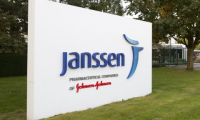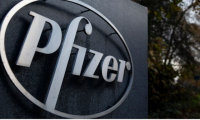-
Janssen signs $245m deal with Cellular Biomedicine for pair of CAR T-cell therapies
- Source: drugdu
- 152
- May 6, 2023
-
Acelyrin follows Kenvue with largest IPO for a biotech startup since 2021
- Source: drugdu
- 120
- May 6, 2023
-
BioSenic progresses cGvHD system and submits patent to EPO
- Source: drugdu
- 129
- May 6, 2023
-
Mpox outbreak was wake-up call for smallpox preparation, vaccine maker Bavarian Nordic says
- Source: drugdu
- 109
- May 5, 2023
-
FDA clears Pfizer’s pneumococcal vaccine for infants and children
- Source: drugdu
- 232
- May 1, 2023
-
Doctors watching for more cases after mysterious cluster of brain infections strikes kids in southern Nevada
- Source: drugdu
- 138
- May 1, 2023
-
Biomarker Signature Test Predicts Which Tumors Will Respond to Immunotherapy
- Source: drugdu
- 4,453
- May 1, 2023
-
Hansa Biopharma enters into collaboration with Genethon
- Source: drugdu
- 128
- April 30, 2023
-
FDA clears Pfizer’s pneumococcal vaccine for infants and children
- Source: drugdu
- 162
- April 30, 2023
-
Exploring Doggybone ™ DNA Technology
- Source: drugdu
- 118
- April 30, 2023
your submission has already been received.
OK
Subscribe
Please enter a valid Email address!
Submit
The most relevant industry news & insight will be sent to you every two weeks.













